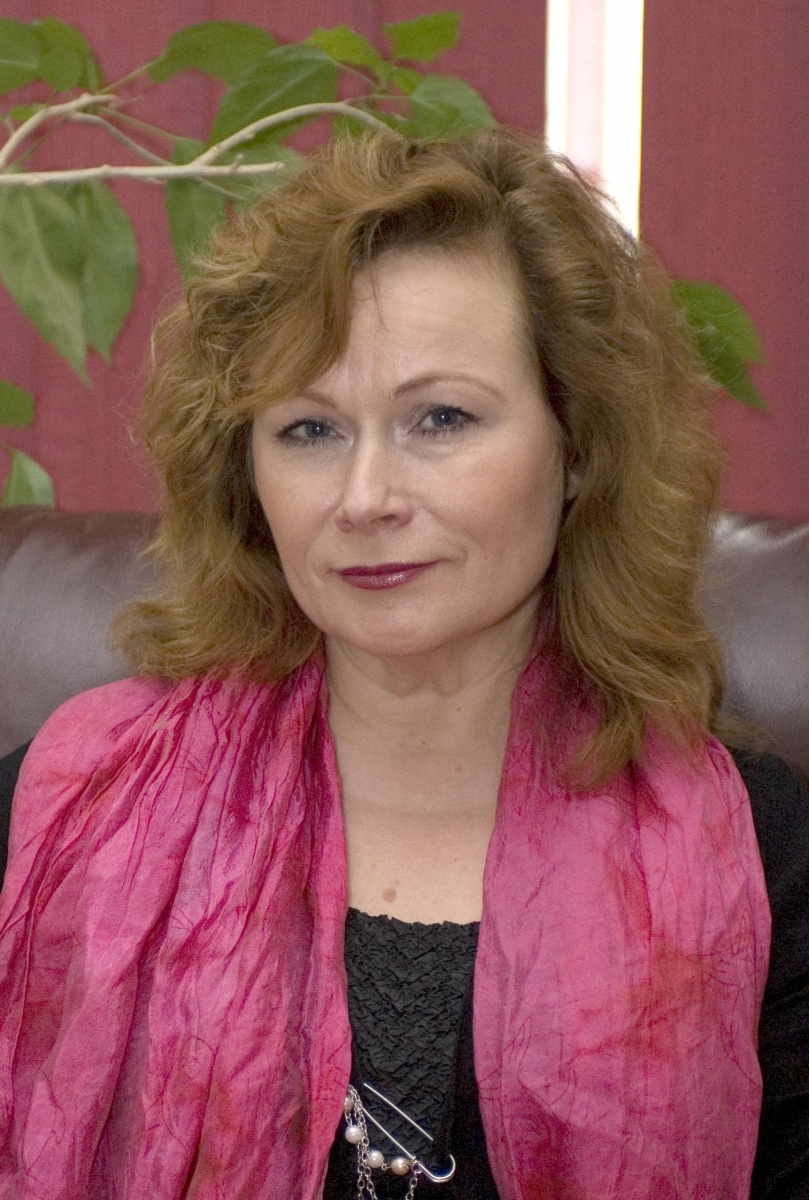
Doris Kareva
Poems
Non-fiction
About Doris Kareva
Doris Kareva (b. 28. XI 1958 in Tallinn into the family of composer Hillar Kareva) is an Estonian poet and translator.
In 1977, she finished at Tallinn 7th Secondary School and entered the Faculty of Philology at the University of Tartu only to leave two years later because of political pressure. She then went to work at the newspaper Sirp ja Vasar as a proofreader and then later as a poetry editor. She completed her degree in English philology at the University of Tartu in 1983 via distant learning.
Doris Kareva has worked as the literary editor of the newspaper Sirp from 1997-2002 and 2011-2013, as editor-in-chief of the magazine Meie Pere from 2009-2010, and secretary general of the UNESCO National Commission of Estonia (1992-2008). Since 1982, she has been a member of the Estonian Writers’ Union. She was one of the founders of the literary group Wellesto.
Doris Kareva’s first poem was published in the late 1960s in the school almanac Trükitähed. She gained fame in the 1970s with the published poems in the journal Noorus and in 1977 collection Viis tüdrukut ja kaheksa poissi (‘Five Girls and Eight Boys’).
Kareva’s work is discreetly soulful, emotionally lyrical, and strongly spiritual. It is characterized by a vision that is contemplative, introspective, and highly realistic but sometimes hallucinatory, leaving an overall sacral impression. Her initial social critique was replaced later by philosophical existentialism. She has been called one of the most sensitive practitioners of high poetry, whose verses are like musical compositions. Her early poetry was influenced by Jüri Üdi and Jaak Jõerüüt, but her later work is simply called ‘karevalian’, which indicates that she has created her own separate chapter in the history of Estonian poetry.
In 1991, Kareva was awarded the Juhan Liiv Poetry Prize for her poetry cycle Pühitsus (‘Sanctification’); in 1991 and 1993, she won the Looming Poetry Prize from the journal of the same name. In 1993, she received the Estonian National Culture Award for her poetry collection Maailma asemel (‘Instead of the World’), which she in turn used to found the Õlekõrs (’The Last Resort’) Scholarship to sponsor young novice poets. In 2001, she was awarded the Order of the White Star, IV Class; in 2003, the Eduard Vilde Prize for her poetry collection Mandragora; and in 2006, the Estonian National Culture Award for her poetry collection Aja kuju (‘The Shape of Time’). Lastly, in 2007, she received the Estonian Cultural Endowment Scholarship Ela ja sära.
Doris Kareva’s work has been published in several anthologies, adapted for the theater and stage reading, and translated into nearly twenty languages. She herself has also compiled thematic collections of Estonian poetry.
As a translator, Kareva has translated classical and modern classical literature, including work by Anna Akhmatova, Samuel Beckett, Emily Dickinson, Kahlil Gibran, Rumi, and William Shakespeare. She has stayed in at least eight countries on a visiting scholarship and compiled introductory works to Estonian culture, which have also been translated into foreign languages.
M. K. (Translated by M. M.)
Books in Estonian
Poems
Päevapildid. Tallinn: Eesti Raamat, 1978, 51 lk.
Ööpildid. Tallinn: Eesti Raamat, 1980, 64 lk.
Puudutus. Tallinn: Eesti Raamat, 1981, 48 lk.
Salateadvus. Tallinn: Eesti Raamat, 1983, 47 lk.
Vari ja viiv. Tallinn: Eesti Raamat, 1986, 79 lk.
Armuaeg. Tallinn: Eesti Raamat, 1991, 256 lk.
Maailma asemel. Tallinn: Perioodika (Loomingu Raamatukogu), 1992, 45 lk. [2. trükk: Tallinn: Verb, 2014, 74 lk].
Kuuhobune. Tallinn: Eesti Raamat, 1991, 21 lk. [Lasteluuletus. 2. trükk: Tallinn: SP Muusika, 2002, 20 lk.]
Doris Kareva, Marina Tervonen, Kammertoon = Камертон. Eessõna: Rein Veidemann. Tallinn: 1997, 126 lk. [Paralleeltekst eesti ja vene keeles.]
Hingring. Tallinn: Huma, 1997, 96 lk.
Mandragora. Tallinn: Huma, 2002, 110 lk.
Aja kuju. Tallinn: Verb, 2005, 110 lk.
Tähendused. Koostaja Kerti Tergem. Tallinn: Verb, 2007, 119 lk.
Lõige. Tallinn: Verb, 2007, 54 lk.
Deka: ilmunud ja ilmumata luulet 1975-2007. Tallinn: Verb, 2008, 326 lk.
Sõna on sõrm, mis osutab vaikuse väele. Loeb Doris Kareva; režissöör Urmas Vadi; helirežissöör Külli Tüli. Tallinn: Eesti Rahvusringhääling, 2008. [Audioraamat: 2 CD-d, 1 t 28 min. Sisaldab luuletusi kogudest ’Armuaeg’, ’Maailma asemel’, ’Hingring’, ’Mandragora’, ’Aja kuju’ ja ’Lõige’.]
Olematuse aiad. Tallinn: Verb, 2012, 95 lk.
Doris Kareva, Jürgen Rooste, Elutants. Tallinn: Verb, 2013, 111 lk.
Perekonnaalbum. Tallinn: Verb, 2015, 88 lk.
Unes nägin ma Eestimaad: kohavaip. Kloogaranna: Huma, 2018, 92 lk.
Short stories
Sa pole üksi: lood. Tallinn: Verb, 2011, 224 lk.
Non-fiction
Ilmaring = Shifting realms. Tõlkinud Kadre Vaik. Fotod: Olga Makina, Herkki-Erich Merila ja Madis Palm. Tallinn: Pilgrim, 2004, 58 lk. [Portreeraamat erinevatest eesti naistest. Paralleeltekst inglise keeles.]


